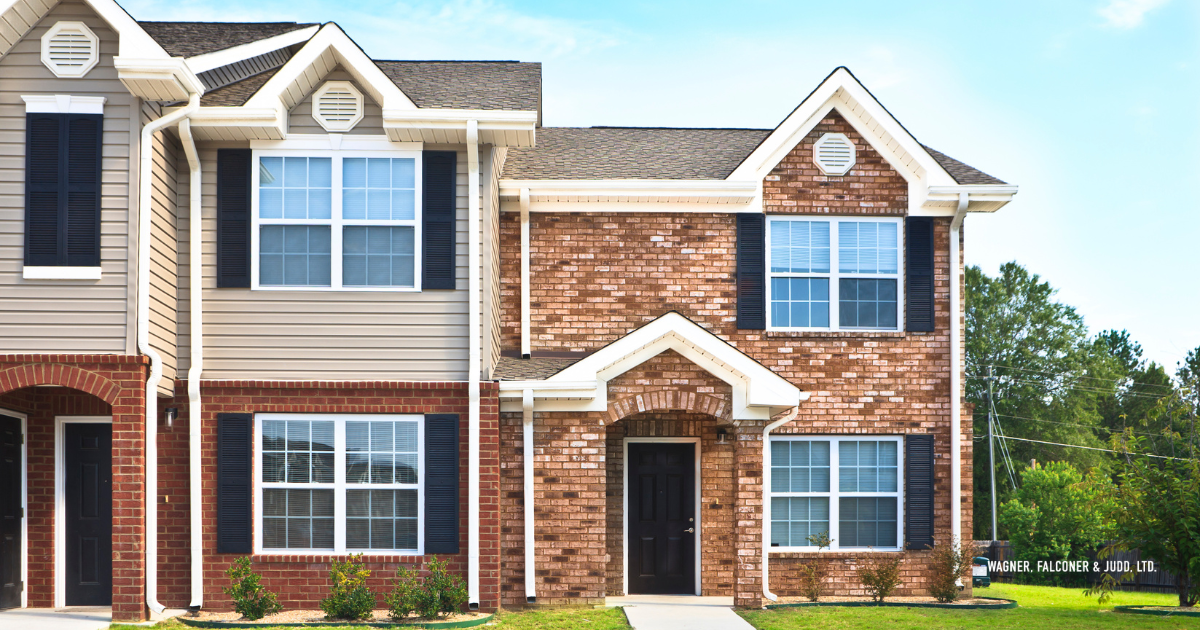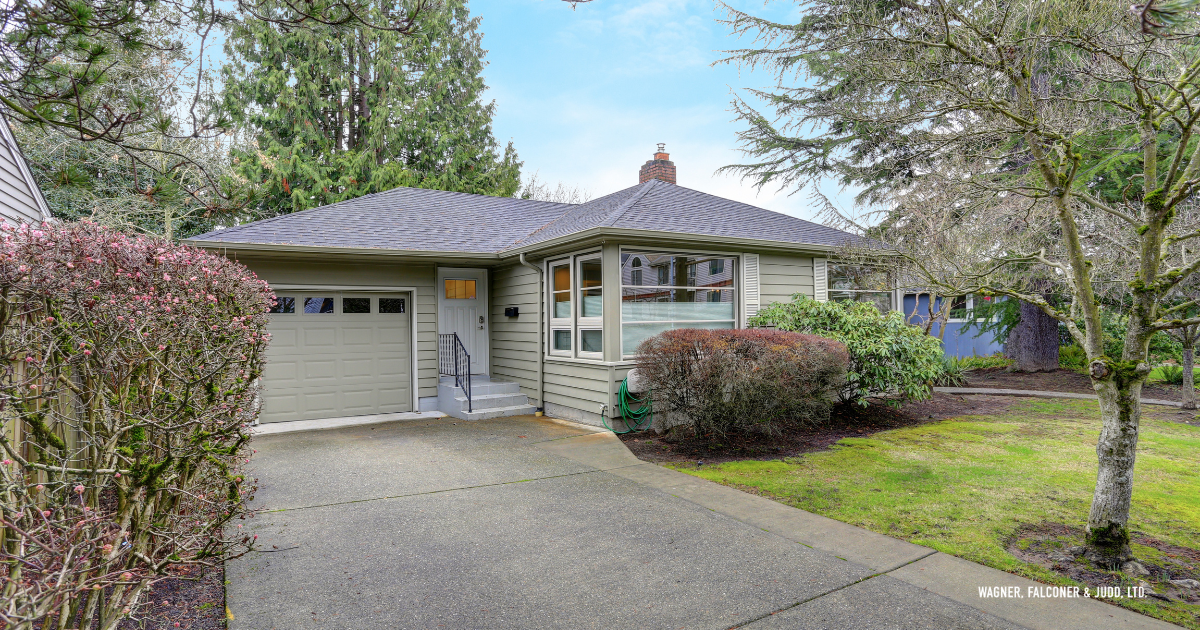Landlord Challenges: 5 Tenant Issues That Can Cost You-and How State Laws Can Work in Your Favor
Landlords across the Upper Midwest share similar frustrations: late payments, damaged units, drawn-out evictions, and tenants who push lease limits. But how you can respond-and protect your investment-depends heavily on state-specific landlord/tenant laws. In this post, we explore the five most common tenant-related challenges landlords face, plus legal insight for property owners in Minnesota, Wisconsin, North Dakota, South Dakota, and Montana.
Nonpayment or Chronic Late Payment of Rent
Tenants falling behind on rent is the most common and financially damaging issue for landords. Delayed payments can disrupt cash flow, affect mortgage payments, and cause tension in the landlord-tenant relationship.
Tip from WFJ:
- Use clear lease language: outlining rent due dates, late fees (within legal limits), and consequences for nonpayment.
- Document all communications and payment histories.
- Follow your state’s required notice process before initiating eviction. For example:
- MN: No statutory notice required for nonpayment before filing, but proper notice may still be best practice.
- WI: 5-day or 14-day notice depending on lease history.
- ND, SD, MT: 3-day notices required before court filing.
- Work with legal counsel to ensure proper service of notices and to prepare for court procedings.
Improper Handling of Security Deposits
Security deposit disputes are a leading cause of small claims cases against landlords. Issues often arise from improper deductions, delayed returns, or lack of documentation.
Tip from WFJ:
- Know your state’s timeline for returning deposits:
- MN: 21 days
- WI: 21 days
- ND: 30 days
- SD: 2 weeks (up to 45 days with written explanation)
- MT: 10 days (no deductions) or 30 days (with deductions)
- Provide an itemized list of damages and costs.
- Take photos before and after move-in/out to document the unit’s condition.
- Keep records of all repair expenses or cleaning costs deducted from the deposit.
Eviction Process Complexities and Delays
Evictions can be time-consuming, expensive, and emotionally taxing. Missteps in the process (wrong notice form, improper service, or missed deadlines) can result in cases being dismissed.
Tip from WFJ:
- Use state-specific notice forms and timelines-they vary widely.
- Document every lease violation, communication, and attempted resolution
- Avoid “self-help” evictions (changing locks, removing belongings) which are illegal in all five states.
- Engage legal counsel early in the eviction process to ensure proper procedure and avoid costly delays.
Property Damage Beyond Normal Wear and Tear
While minor wear is expected, landlords often face significant damage caused by neglect, misuse, or intentional destruction.
Tip from WFJ:
- Conduct thorough move-in and move-out inspections with signed checklists.
- Include clear lease provisions outlining tenant responsibility for damage.
- In cases of excessive damage, deduct repair costs from the deposit with documentation-or pursue a civil judgment if damage exceeds the deposit.
- Some states allow landlords to include provisions requiring tenants to carry renter’s insurance.
Inconsistent Lease Enforcement or Poor Lease Drafting
Weak, outdated, or vague lease agreements often lead to disputes that favor the tenant. Landlords who don’t consistently enforce terms also risk discrimination or retaliation claims.
Tip from WFJ:
- Use state-specific lease templates that include legally compliant language.
- Ensure the lease covers key issues: rent due date, late fees, entry rights, maintenance, pet rules, occupancy limits, etc.
- Apply rules consistently to avoid claims of selective enforcement.
- Have your lease reviewed by an attorney familiar with the landlord-tenant laws in your state.
Key State-Specific Laws that Impact Landlords
Minnesota
- Eviction filings: Must follow strict notice procedures; unlawful detainer process required.
- Security deposits: Must be returned within 3 weeks of move-out.
- Notice to Terminate Tenancy:
- Periodic Lease: 1 full rental period’s notice (usually a month).
- Emergency repairs: Tenants may file rent escrow if landlords fail to maintain habitability.
- Retaliation protection: Landlords cannot retaliate against tenants who report violations or request repairs.
- Late fees: Must be disclosed in wiring and cannot exceed 8% of the overdue amount.
Failure to strictly follow the law can lead to dismissal of eviction actions or fines.
Wisconsin
- Eviction process: Must issue a 5-day or 14-day notice dpeending on lease terms and violation.
- Security deposits: Return within 21 days of tenancy termination.
- Entry requirements: At leas 12 hours’ notice before entering a unit.
- Disclosure laws: Must disclose building code violations or flooding risk.
- Abandoned property: No requirements to store a tenant’s abandoned property unless stated in the lease.
Procedural missteps during eviction or deposit returns are a common legal pitfall.
North Dakota
- Security deposits: Return within 30 days; can charge up to 1 month’s rent, or 2 months if tenant has a felony.
- Termination notice: 30 days for month-to-month; no notice required for nonrenewal of a fixed-term lease.
- Eviction: Summary process but must be filed in district court.
- Entry: Reasonable notice required; except for emergencies.
Eviction hearings may be quick, but failing to provide proper documentation or notice can delay possession.
South Dakota
- Security deposits: Must be returned within 2 weeks, or 45 days with itemized statement of damages.
- Termination for Month-to-Month: Requires 30 days’ written notice.
- Eviction: Requires 3-day notice to quit for nonpaymen, then a court filing.
- Entry notice: Must provide reasonable notice; typically 24 hours.
Short notice periods for eviction require landlords to act quickly and accurately.
Montana
- Security deposits: Return within 10 days if no deductions, or 30 days with an itemized list of damages.
- Notice to terminate: Month-to-month-30 days.
- Eviction process: Begins with a 3-day notice, followed by court action.
- Right of entry: Must give 24-hour notice
Montana’s detailed rules on habitability and repair can lead to disputes if landlords don’t keep up with maintenance.
Landlords can minimize risk and avoid costly disputes by proactively reviewing leases, maintaining documentation, and working with legal counsel who understands the specific laws of their state. Investing in legal guidance upfront saves time, money, and stress in the long run.

